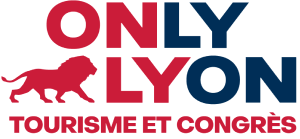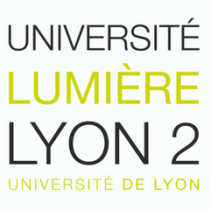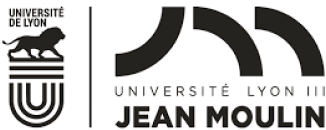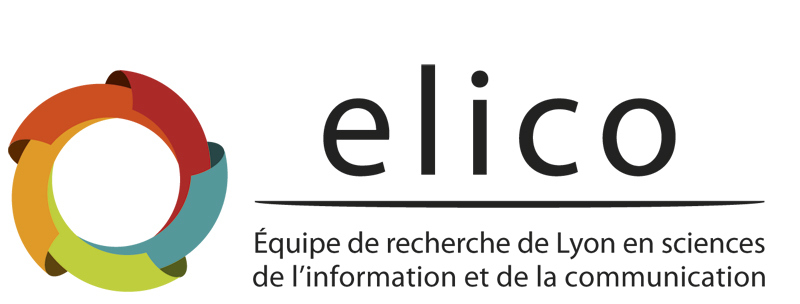
The Participatory Communication Research (PCR) Section of the International Association for Media and Communication Research (IAMCR) invites the submission of proposals for single papers and panels for IAMCR 2023, to be held in Lyon, France, from 9 to 13 July (Lyon23) with an Online Conference Papers (OCP23) component from 26 June to 5 July.
The deadline for submission of proposals is 9 February 2023 at 23h59 UTC.
See the CfPs of all sections and working groups >
Conference themes
IAMCR conferences have a main conference theme that is explored from multiple perspectives throughout the conference in plenaries and other moments, including the programmes of the thematic sections and working groups. Additionally, each section and working group also defines some of its own themes, which are described in their individual calls for proposals. Proposals for contributions to the conference are submitted to the sections and working groups and may focus on an aspect of the main conference theme as it relates to the concerns of the section or working group, or address a theme identified by the section or working group.
Main theme – Inhabiting the planet: Challenges for media, communication and beyond
The main theme for IAMCR 2023, “Inhabiting the planet: Challenges for media, communication and beyond”, is concerned with possibilities for rethinking communication research agendas at a time when the irreversible effects of climate change are compounded by stark geopolitical, sociocultural, and religious tensions in human communities. At this juncture, urgent reflection and research are needed on how we can hope to flourish today and in the future, and also how media and communication tools and environments can be positive forces and spaces for change.
Five sub-themes of this central theme have been identified: Humanity and progress; democracy; media, information, and communication; cities and territories; and environmental accountability.
Consult a detailed description of the main theme and its sub-themes
This year's Conference theme allows the Participatory Communication Research Section (PCR) an opportunity to highlight the role of participatory communication in building a better world for all inhabitants, mainly the ones who are considered the "others". How to build a common future, without excluding the majority of the population? How to build a world where all the worlds are welcome? How to build friendly communicational environments, where diverse voices are co-creating the present and the future of the planet?
Inhabiting the planet is intrinsically participatory.
The PCR Section explores the theory and practice of participatory communication and has played an important role as a platform for new thinking. In line with the general IAMCR call for papers for the Lyon 2023 Conference, the PCR Section addresses issues related to the contributions of participatory communication to build a better planet to inhabit. We welcome contributions — papers and panels, individual research or thematic, according to the different possibilities of the IAMCR Lyon 2023 Conference — focusing on participation from a diversity of fields, including (but not limited to) development and social change, activisms, politics and democracy, citizenship and consumption, climate change and sustainability, health and care, culture and arts, urban and rural, education and literacy, and the everyday. While the PCR section has traditionally accommodated creative approaches to participatory communication, it has over recent years intentionally encouraged interdisciplinary methods marked by critique, creativity, and innovation.
Adding to the conference's main theme submissions, the section welcomes contributions that discuss theoretical or methodological perspectives on a variety of participatory communication research issues and specific case studies. In particular, the section invites proposals for single papers and multi-paper sessions, theoretical, research-based, or case studies that engage with any of the following themes:
1. Participation, commons and technology
A few years ago, there was an almost automatic association between digital media and participatory cultures. However, in the age of platformization, algorithms, and datification, the same technologies that facilitate participation have also been breeding grounds for polarization, misinformation, and harassment that inhibit participation. In this line, we welcome approaches to the challenges of the link between participation and digital technology. What are the implications of platformization and algorithmization for communication practices and participation in the public sphere? What are and how do barriers to participation in digital media operate? How do resistances - eg. data activism and data feminism - operate to counteract the challenges of datification? What are the roles of community and civic participation in the building of technologies to empower communities?
2. Citizen and consumer participation
Inhabiting the planet with the global consciousness that it is our common ground summons a complex conceptual structure, a “political ecology” (Latour, 2022) in which participatory communication plays a key yet challenging role. Through participation, we can deliberate, envision, inspire, empower and take action.
How is participatory communication enabling citizenship? What are the challenges citizens experience in participation and how do they face them? What is the role of communication and media in citizen participation?
Can participatory communication, especially powered by the digital, contribute to strengthening democracy and encourage political agency at a planetary scale? Or is globalisation - with corporate concentration (including media conglomerates) and a highly unequal distribution of power in spite of digital technologies and widespread access narratives, an impediment to effective citizen participation? How are citizens and consumers holding authorities, institutions, and the media accountable for their public statements and impacts?
How is participatory communication shaping the media ecosystem competition and interaction with publics and audiences and how does that interaction frame the content and the model of media industries? How is it challenging the boundaries of media creation, production, and consumption in a prosumer paradigm of co-creation?
3. Participation and urban communication
Inhabiting the city. United Nations experts predict that the world's urbanization rate will reach 60% by 2030. The process of urbanization means the transition of people's living space and public participation is an important part of urban communication content. The modern city is the hotbed of the birth and growth of media, which embeds and changes the time and space, communication relationship, and life trajectory of the city, forming a new communication pattern. In the Internet era, digital urban scenes have promoted great changes in communication practices, such as short videos, vlogs, public art displays, public digital participation, urban information governance, and so on. In the digital media environment, a large number of new phenomena and problems have emerged in urban communication. How should we recognize the relationship between people and smart cities? What role does public participation play in the planning of smart cities? How can people rationally participate in future virtual city communication practices? And how is the city being inhabited, both by people and by the media?
4. Participation, communication for development and social change
Practitioners as well as academics working in the field of Communication for Development and/or Social Change (CDSC) are invited to critically reflect on the role of regional communication, and on its participatory dimensions. What are the similarities and differences in how CDSC is conceived and practiced across the globe? Who are the changemakers, what are their goals and challenges, and how do they articulate and perform processes of change? A broad spectrum of initiatives – ranging from institutional actors such as governments and INGOs to smaller NGOs, civil society platforms, and social entrepreneurs – may reflect on the role of participation and on how the transformation of social, cultural, and political territories influence and/or function as a pretext for their work.
5. Participatory Theory, Ethics and Methodology
To develop a deeper understanding of the theoretical backbones of participatory practices, the section values proposals that ground participatory practices in social, political, and/or cultural theory, or that provide a philosophical reflection on participatory practices. Conceptual discussions about the nature of participation and its related concepts – for instance, power, empowerment, interaction, and engagement – are welcomed.
Also, contributions that reflect on the need for, and development of, participatory ethical frameworks, the ethical evaluation of contemporary participatory practices, and critiques on the abuse of participatory procedures and mechanisms for non-democratic aims are welcomed. Could the increased opportunities for interaction be considered participation? How to strengthen the articulation of participatory procedures with core democratic values, human rights, and ethics? Practices such as trolling and flaming, which are highly present in the contemporary, place considerable pressure on the development of more egalitarian societies, as they generate new imbalances by using (and abusing) the mechanisms of participation and democracy.
Adding to that, researchers in participatory communication face specific methodological challenges. Relevant questions are here: What is ‘participatory’, if anything, about the ways in which we conduct research? Is participatory (action) research required for doing participatory communication research? How do we construct our identities as researchers, and negotiate our positions toward research participants and other stakeholders in a participatory-democratic way? How do we design the analytical process, and implement criteria for validating our findings? How can we present our work in more interactive and participatory ways? Submissions to this subsection are preferably grounded in concrete research experiences within participatory communication. All research traditions are welcome, including quantitative, qualitative, ethnographic, arts-based, action-oriented, etc.
Contributing to the conference: Lyon23 and OCP23
There will be two ways of joining IAMCR2023:
- If you are not able to or don’t want to join the face-to-face conference in Lyon but do want to submit an online-only paper, submit your abstract to OCP23 only. If accepted, you’ll later submit your full paper to the online platform, which will be open for discussion from 26 June to 5 July.
- If you do want to join the face-to-face event, submit your abstract to Lyon23 and OCP23. If accepted you’ll submit your paper to the online platform and present it at the face-to-face conference.
Guidelines for abstracts
Abstracts submitted to the Participatory Communication Research Section should have between 300 and 500 words and must be submitted online here. Abstracts submitted by email will not be accepted.
The deadline to submit abstracts is 9 February 2022 at 23h59 UTC.
It is expected that authors will submit only one (1) abstract. Under no circumstances should an author submit more than two abstracts as a single author or as the lead author of a co-authored paper and no author will submit more than one abstract to the Participatory Communication Research Section. The same abstract or another version with minor variations in title or content must not be submitted to more than one section or working group. Any such submissions will be deemed to be in breach of the conference guidelines and will be rejected.
Proposals for panels can only be submitted to Lyon23 and OCP23. Panel submissions must include an abstract for each paper submitted here and a description & supplemental information submitted via this form on the conference website
See important dates and deadlines to keep in mind
Languages
The PCR section encourages the submission of proposals in any of the three official languages of the association (English, Spanish, French).
For further information about the Participatory Communication Research Section (PCR), its themes, submissions and panels please contact: iamcr.pcr [at] gmail.com
Join the PCR section in social media: https://www.facebook.com/groups/iamcrpcr/






